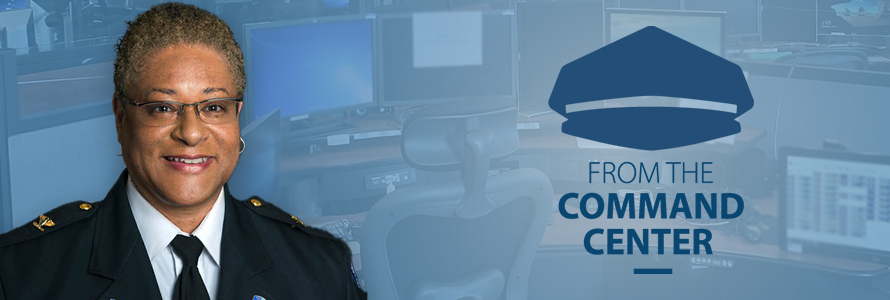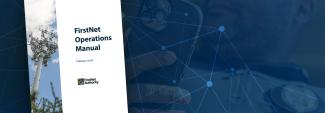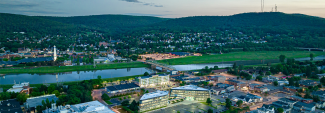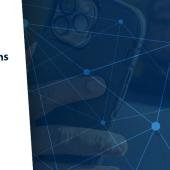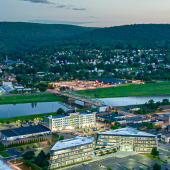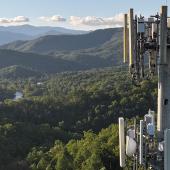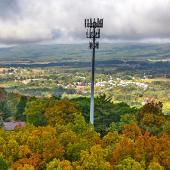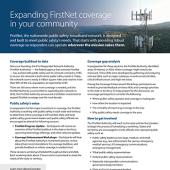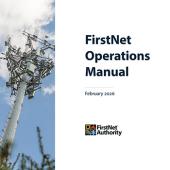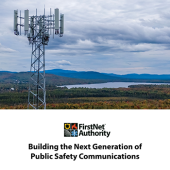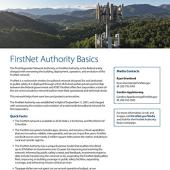Renee Gordon leads a large and innovative 9-1-1 center in the Washington, D.C., metropolitan area. As Director of the Department of Emergency and Customer Communications for the City of Alexandria in Virginia, she oversees 71,000 incoming 9-1-1 calls in a year.
Gordon is an effective 9-1-1 leader because she understands all sides of a 9-1-1 call. She has been a public safety dispatcher, a police officer, and a person who has experienced emergencies. Before joining the dispatcher community, Gordon spent 10 years as an officer with the Prince George’s County Police Department in nearby Maryland.
“When I was on the other side of the radio as a police officer, I had no idea what the dispatcher was actually going through,” said Gordon. “I used to think they just answer phones. Not true! We’re doing a tough job. I wouldn't have known that if I stayed on the other side of the radio.”
Having dual experience as a police officer and a telecommunicator has helped Gordon understand perspectives of 9-1-1 staff and law enforcement. “I can be the translator between both.”
Often 9-1-1 call-takers are interacting with people on some of the worst days of their lives. “It takes special people to be in these jobs,” Gordon said. She recalled how panicked she felt when an emergency occurred in her family. “Sometimes you don't understand until it happens to you,” she said.
One of the biggest challenges for 9-1-1 telecommunicators, according to Gordon, is that the profession is often underappreciated. “We need to be seen as true public safety professionals who do a hard job.”
Empowering innovative leaders of tomorrow
Gordon’s leadership style is to empower her team to make critical decisions by seeking out the best and most innovative solutions. She said, “I want to live in a community where the leaders are forward-thinking and always looking at the possibilities and the technology to make the job better.”
“I let people strategize with me. No problem is my problem. It is our problem,” she said.
Gordon and her team in Alexandria are known for creative problem-solving. When the pandemic hit in March 2020, Alexandria was one of the first 9-1-1 agencies in the nation to implement remote call-taking. Staff set up equipment at home using a FirstNet hotspot, giving them full functionality and access to computer-aided dispatch.
Reliability of public safety broadband
Now more than two years later, Alexandria’s 9-1-1 staff continue to work from home. Gordon says that some of her peers at other 9-1-1 agencies are surprised by that and express concerns about dropped calls. She credits FirstNet for providing the reliable connection needed to successfully process remote 9-1-1 calls.
“A public safety network is so important to how we do our jobs. The reliability of FirstNet has been phenomenal for our staff,” she said.
Gordon and her team put FirstNet through rigorous testing before going live with remote 9-1-1 calls.
“We did a lot of testing of FirstNet,” she said. The network proved so reliable that Gordon and her team had to pull FirstNet out of tests at times to determine where dropped calls were going. “We had to drop FirstNet to make sure that we could drop the call to do the testing,” she explained.
The benefits of remote 9-1-1
Having a hybrid in-person and remote work schedule for telecommunicators has been a boon for the City of Alexandria.
Gordon said that being “remote-ready” has helped their agency rapidly staff up when needed because it eliminates travel time to the 9-1-1 center. “Sometimes an hour-long wait to get someone in to take calls happens instantly now,” she said.
Remote work has been a good recruiting tool during a time of telecommunicator staffing shortages. Applications have even come from people living outside the city who would benefit from remote work. Similarly, Gordon recognizes that remote 9-1-1 operations could benefit agencies serving smaller populations by allowing them to cast a wider net for talent.
That’s part of the reason Gordon is committed to helping other emergency communication centers understand how to set up remote operations. “Based on the way it's helping us — this could be amazing for other ECCs,” she said.
Using public safety tools
One of Gordon’s goals in promoting remote 9-1-1 operations is to get more agencies signed up for FirstNet. “We need more people on the network. The law creating FirstNet was put in place for a reason — so we can do our jobs that we love so much.”
As more public safety agencies join FirstNet, everyone benefits from interoperable communications. “We're sharing everything,” Gordon said. “So, FirstNet is helpful when it's time to get a critical communication to not just someone in my organization, but to other organizations, too.”
“Let's use the tools that we've been given,” she continued. “If a carpenter does not have her hammer, then she can't do her job. And FirstNet is a tool that we need to do our jobs in public safety.”
Public safety as one
In that same spirit of interoperability, Gordon and her team in Alexandria are partnering with the neighboring city of Arlington to regionalize their 9-1-1 operations. Arlington also has remote 9-1-1 capability.
“Arlington and Alexandria took this on because we need to be more resilient and less compartmentalized,” she said. “We can help each other staff up quickly.”
As part of this effort, the 9-1-1 agencies in Arlington and Alexandria will soon be sharing computer-aided dispatch. “So that means if a call drops in Arlington and we get it in Alexandria, we're not worried about the liability because everything is standardized,” said Gordon.
Gordon continues to empower her public safety colleagues to identify the next innovative solution with the goal of providing better service to their communities.
“We need to see public safety as one,” she said. “Every community in the country deserves the same level of service—whether it's a tribal, rural, or urban community. And we can only get that by advancing technology and sharing ideas.”


